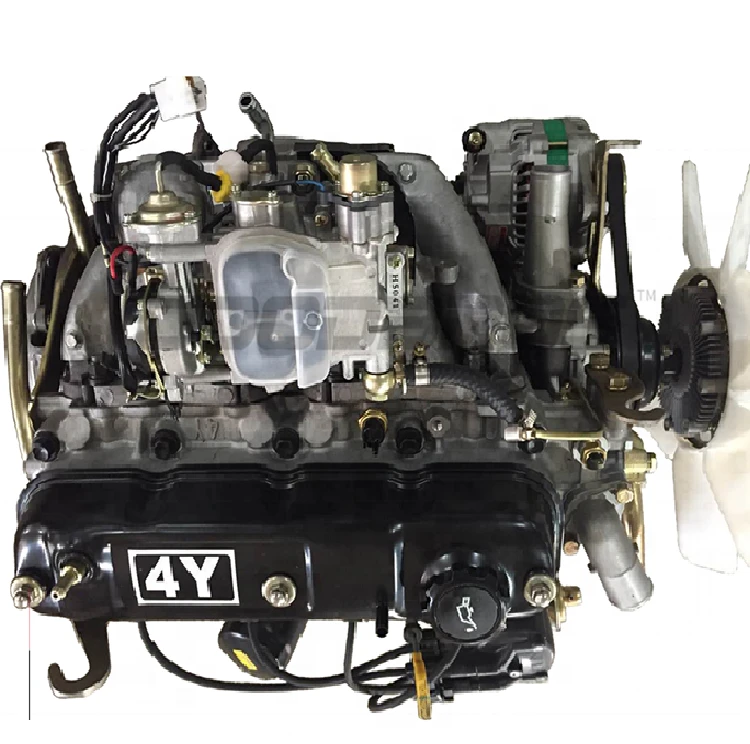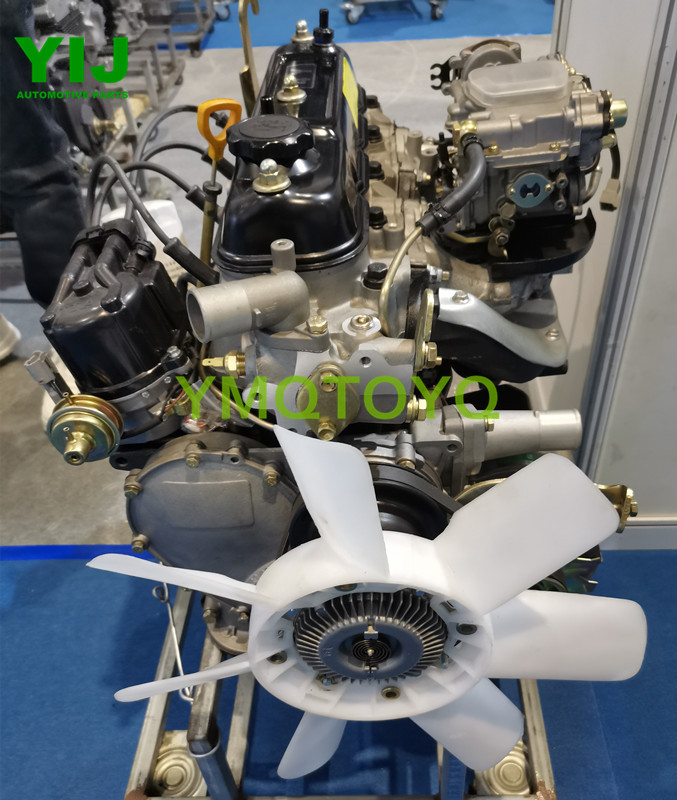The Advantages of Choosing a Vehicle Powered by the 4Y Engine
Exploring the Different Kinds Of Engine: Which One Fits Your Requirements?
In the mission to figure out one of the most ideal engine kind for your details demands, it is crucial to review the distinctive features and advantages of each alternative offered. Inner combustion engines remain to dominate because of their dependability, while electrical engines are acquiring traction for their sustainability. Hybrid engines offer a versatile concession, and diesel motor stand out for their power sought after applications. Additionally, alternative gas engines existing ingenious options, albeit with certain limitations. Understanding your top priorities will certainly contribute in this decision-making process, resulting in an expedition of variables that might influence your choice.

Interior Combustion Engines
Inner burning engines (ICEs) are the backbone of modern-day transport, powering a large array of automobiles from automobiles to aircrafts. These engines operate the principle of transforming fuel right into mechanical energy via a collection of controlled explosions within a burning chamber. One of the most typical sorts of ICEs include fuel engines, diesel engines, and rotating engines, each created to meet certain performance and performance requirements.
Fuel engines normally utilize trigger ignition, while diesel motor depend on compression ignition, causing distinct distinctions in fuel effectiveness and power result (4y engine). Rotating engines, or Wankel engines, provide a portable design and smooth procedure, but are less generally utilized in mainstream applications
ICEs have actually undertaken substantial advancements in technology, including the introduction of turbocharging and fuel injection systems, which improve general effectiveness and efficiency. In spite of their effectiveness enhancements, ICEs face boosting scrutiny due to their environmental impact, specifically pertaining to greenhouse gas exhausts.
Electric Engines
As problems about environmental sustainability and nonrenewable fuel source dependence expand, electrical engines have emerged as a compelling option to interior combustion engines. These engines utilize electrical motors powered by batteries or gas cells, offering a cleaner and more reliable motive powers.
Among the primary advantages of electric engines is their decreased discharges. Unlike conventional engines that burn nonrenewable fuel sources, electrical engines produce zero tailpipe discharges, substantially reducing air pollution and adding to enhanced public health. In addition, the efficiency of electric motors usually exceeds that of internal burning engines, converting a better percentage of power from the source of power into useful energy for activity.
Electric engines are likewise notable for their peaceful operation, making them ideal for city environments. 4y engine. The simpleness of their design causes less relocating parts, which can cause reduced maintenance prices and enhanced integrity with time
Nonetheless, challenges stay, including battery production influences, charging infrastructure, and array limitations. In spite of these difficulties, the growing financial investment in electrical car modern technology and renewable energy resources factors toward an appealing future for electrical engines, positioned to play an essential function in the change toward sustainable transport.
Crossbreed Engines
Mixing the advantages of both electric and typical interior burning engines, hybrid engines stand for a flexible remedy in the quest for effective and lasting transport. These engines incorporate a gasoline or diesel engine with an electric motor, enabling for boosted gas efficiency and reduced discharges compared to standard cars.
Hybrid engines run in a number of settings, making use of the electrical motor for low-speed driving and the inner combustion engine for higher rates or when even more power is required. This dynamic procedure not just enhances fuel economic situation but also contributes to a smoother driving experience. Regenerative braking is another vital function, recording power typically lost throughout stopping and rerouting it to charge the battery.

As consumers progressively focus on eco-friendliness, hybrid engines stick out as a functional choice, offering a reliable balance of efficiency, performance, and ecological responsibility. This flexibility makes them appropriate for urban travelling and long-distance travel alike.
Diesel Motor
Performance and power are characteristics of diesel motor, which have actually long been preferred for their robustness and gas economic climate. These engines operate the principle of compression ignition, where air is compressed to a high temperature level prior to fuel is infused, igniting it without the requirement for click reference stimulate plugs. This process makes it possible for diesel engines to attain higher thermal performance compared to fuel engines, equating into far better fuel mileage and reduced carbon dioxide exhausts.
Diesel motor are specifically well-suited for durable applications such as vehicles, buses, and industrial machinery, where torque and toughness are paramount. Their style generally includes more powerful parts to withstand the higher pressures produced throughout procedure, resulting in longer life span and minimized upkeep prices.

Alternate Fuel Engines
While diesel engines have lengthy controlled the landscape of sturdy source of power, alternate fuel engines are gaining grip as sensible choices for an extra lasting future. These engines use a variety of gas, such as pressed gas (CNG), hydrogen, ethanol, and propane, intending to minimize greenhouse gas discharges and reliance on fossil fuels.
One significant benefit of alternate fuel engines is their possible to lower carbon impacts. CNG engines discharge less pollutants contrasted to conventional diesel engines, making them ideal for metropolitan transportation systems and fleets seeking to boost air high quality. Ethanol, stemmed from biomass, not just reduces exhausts but likewise supports agricultural economic situations.
Hydrogen gas cells stand for a sophisticated development in this world, offering zero-emission power special info with a chemical response between hydrogen and oxygen. Nevertheless, obstacles such as facilities development and manufacturing prices remain challenges to prevalent adoption - 4y engine.
Conclusion
Finally, choosing the ideal engine type demands mindful consideration of particular requirements and choices. Inner combustion engines provide dependability, while electrical engines prioritize sustainability and reduced upkeep. Crossbreed engines combine the advantages of both, boosting efficiency, whereas diesel engines offer superior power and torque for heavy-duty applications. Alternate gas engines existing environmentally friendly options, albeit with possible framework challenges. Ultimately, a comprehensive assessment of driving practices and environmental values will help with a notified decision concerning engine choice.
Crossbreed engines provide a flexible compromise, and diesel engines stand out for their power in requiring applications. The most usual kinds of ICEs include gasoline engines, diesel engines, and rotating engines, each created to satisfy certain performance and efficiency requirements.
Unlike standard engines that burn fossil gas, electrical engines create zero tailpipe exhausts, significantly decreasing air pollution and contributing to boosted public health and wellness.Hybrid engines run in a number of modes, making use of the electrical motor for low-speed driving and the internal burning engine for higher rates or when even more power is needed. Crossbreed engines combine the benefits of both, improving efficiency, whereas diesel engines give exceptional power and torque for heavy-duty applications.